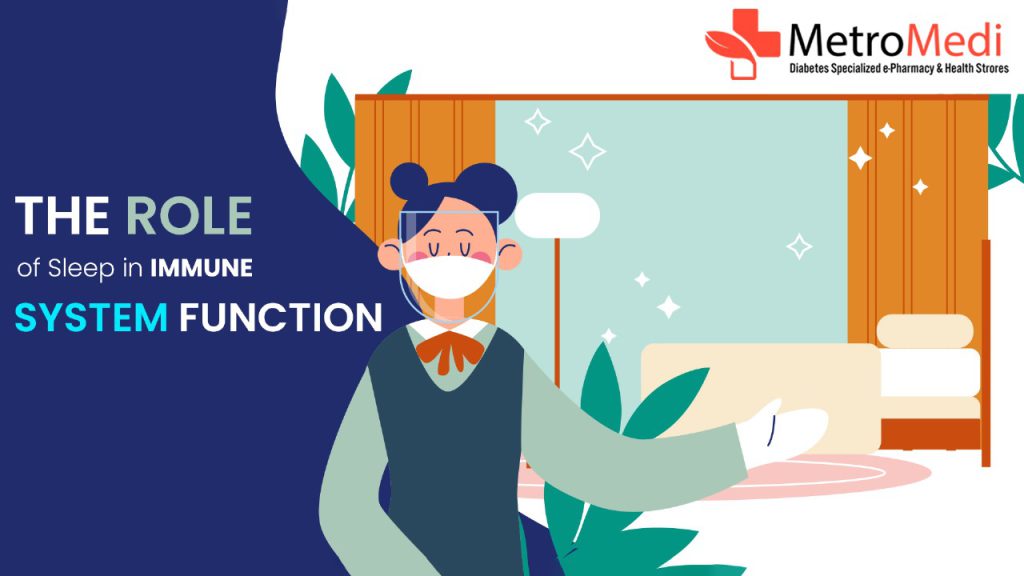
Sleep is often referred to as the body’s natural healer, and its role in maintaining a robust immune system cannot be overstated. While we rest, our body is hard at work repairing tissues, consolidating memories, and producing vital immune cells. In this blog, we’ll explore the intricate relationship between sleep and immune system function, highlighting why getting enough quality sleep is essential for your overall health. We’ll also discuss sleep therapy and the benefits of online counselling for sleep issues.
The Connection Between Sleep and Immunity
The immune system is our body’s defence mechanism against harmful invaders such as bacteria, viruses, and other pathogens. It relies on a complex network of cells and proteins to identify and neutralize these threats. Sleep plays a crucial role in supporting the immune system by enhancing the efficiency of these immune responses.
1. Production of Cytokines
Cytokines are proteins that act as messengers between cells. They play a key role in the immune response by signalling immune cells to move toward sites of inflammation, infection, or trauma. During sleep, the production of cytokines increases, especially during deep sleep (also known as slow-wave sleep). These cytokines help regulate the immune response, ensuring that the body can effectively combat infections and recover from illness.
2. T-Cell Function
T-cells are a type of white blood cell that are critical in the body’s immune response. They help identify and destroy infected cells. Research has shown that sleep enhances the function of T-cells by improving their ability to adhere to and eliminate infected cells. Inadequate sleep can impair T-cell function, making the body more susceptible to infections.
3. Antibody Production
Antibodies are proteins produced by the immune system to neutralize pathogens such as bacteria and viruses. Sleep is essential for the production of antibodies following vaccination. Studies have demonstrated that individuals who receive adequate sleep after being vaccinated produce more antibodies, which enhances the effectiveness of the vaccine.
The Impact of Sleep Deprivation on Immunity
Chronic sleep deprivation can have a detrimental impact on the immune system. Lack of sleep reduces the production of protective cytokines and antibodies, leaving the body more vulnerable to infections. Additionally, prolonged sleep deprivation can lead to chronic inflammation, which is associated with a range of health issues, including cardiovascular disease, diabetes, and autoimmune disorders.
Sleep Therapy and Online Counselling for Sleep
If you’re struggling with sleep issues, sleep therapy can be a valuable tool to improve your sleep quality and, consequently, your immune system function. Sleep therapy encompasses various techniques and treatments designed to address sleep disorders and promote healthier sleep patterns.
Online counselling for sleep is an accessible and convenient option for those seeking help. Through online counselling, you can connect with qualified professionals who can provide guidance, support, and personalized strategies to improve your sleep. This form of online counselling is especially beneficial as it allows you to receive expert advice from the comfort of your home.
Tips for Better Sleep and Stronger Immunity
- Maintain a Regular Sleep Schedule: Go to bed and wake up at the same time every day, even on weekends. This helps regulate your body’s internal clock and improves the quality of your sleep.
- Create a Relaxing Bedtime Routine: Engage in calming activities before bed, such as reading, meditating, or taking a warm bath. Avoid screens and bright lights, which can interfere with your body’s production of melatonin, the sleep hormone.
- Optimize Your Sleep Environment: Ensure your bedroom is cool, dark, and quiet. Invest in a comfortable mattress and pillows to support restful sleep.
- Limit Stimulants and Heavy Meals: Avoid caffeine and large meals close to bedtime. These can disrupt your sleep and negatively affect your immune system.
- Stay Active: Regular physical activity can help you fall asleep faster and enjoy deeper sleep. Aim for at least 30 minutes of moderate exercise most days of the week, but avoid vigorous workouts close to bedtime.
Conclusion
Quality sleep is a cornerstone of a healthy immune system. By prioritizing good sleep habits and considering sleep therapy or online counselling for sleep issues, you can support your body’s natural defence mechanisms and improve your overall well-being. Remember, a well-rested body is better equipped to fight off infections and keep you feeling your best. So, make sleep a priority and give your immune system the boost it needs to keep you healthy.
